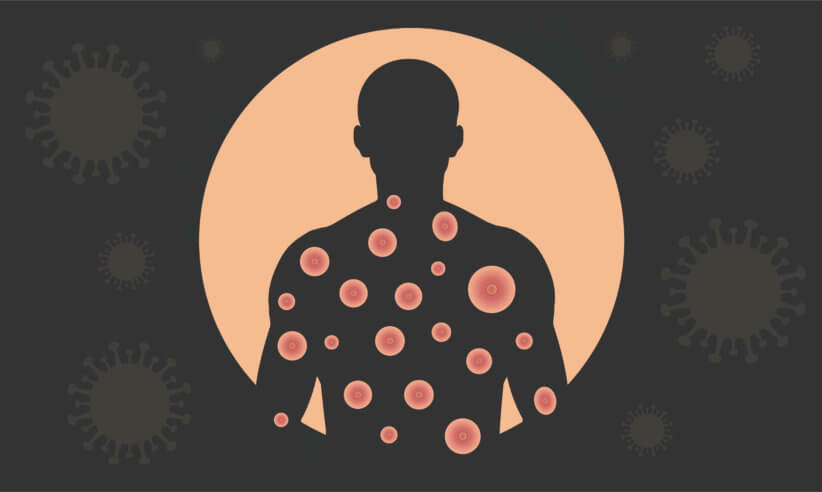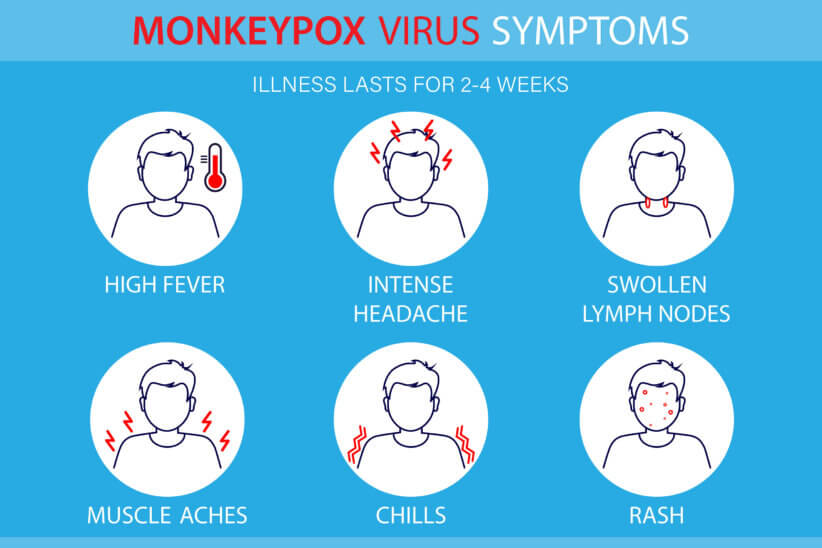
Monkeypox Vaccine Offered to Westchester Residents
There are currently 25 reported cases of Monkeypox in Westchester County. This rare viral inflection commonly causes rashes, bumps, fever, headache, muscle aches, chills, fatigue, exhaustion, swollen lymph nodes, or blisters on or around the genitals, inside the mouth, hands, feet, chest, or face. In some cases, it can result in hospitalization or death.
Below, is the most current information about the Monkeypox vaccine (MPX) and where to find it in Westchester County.

How is Monkeypox Spread?
Monkeypox is spread by close, physical contact. This is transmitted by breathing in the virus, being in direct contact with Monkeypox sores or rashes, body fluids such as during intimate physical contact, or touching objects and fabrics (such as bedding, clothing, etc) that have been in contact with someone who has Monkeypox.
Monkeypox usually lasts 2-4 weeks and can include different phases of rashes and symptoms. Check out what some common Monkeypox rashes look like here.
Some groups may also be at heightened risk for severe outcomes if they contract Monkeypox. This includes people with weakened immune systems, seniors, children under eight years old, and pregnant people. This information is only based on previous outbreaks and can change as more information comes out.
Monkeypox Testing
If you believe you have Monkeypox, or have been in contact with someone with the disease you should contact your health care provider. They will provide testing by swabbing an infected area or lesion. This is processed in a lab and results are usually given in 48 hours. Contact tracing is not a part of the current protocol and there is no home testing option at this time. They may prescribe pain medication and give you a plan for keeping the area clean as well as what over-the-counter topical creams to use.
Monkeypox Prevention
For children, continue to practice good hands washing, wear a mask, and avoid direct contact with infected people. If you live with someone who has Monkeypox, the infected person should wear a mask (when close-by), cover their lesions, and isolate. They should also wear gloves when touching bedding, towels, and any household fabrics as Monkeybox can spread this way as well.
The Monkeypox Vaccine in Westchester
Westchester County is offering the Monkeypox vaccine at some clinics by appointment only. Exposure has to have happened within 14 days or less with an infected individual, or have engaged in sexual activity with someone who has Monkeypox in order to be eligible.
County Executive George Latimer noted, “While the risk for Monkeypox remains low for Westchester County residents, we want everyone to be aware that this virus can spread from person to person. Monkeypox can be transferred from the time symptoms begin, until the rash has fully healed and a new layer of skin has formed. If you feel you are exhibiting symptoms of the virus, we encourage you get vaccinated as soon as possible.”
The Monkeypox vaccine (MPX) is a two-dose vaccine with 28 days between doses for adults 18+. Westchester County received 450 doses of the MPX vaccine in the first batch, and 520 doses in the second batch.
The Phase I Plan (First Batch) for MPX vaccine:
| Provider | Doses |
| Westchester Medical Center | 100 |
| Open Door Family Medical Center | 100 |
| White Plains Hospital/Family Medicine Clinic | 10 |
| St John’s Riverside Hospital’s Hope Community Center. | 100 |
| Westchester County Department of Health | 50 |
| Remaining Supply | 90 |
Phase II Plan for MPX vaccine distribution occurs at clinics on Mondays from 12:00pm-3:00pm, and Wednesdays from 4:00-7:00pm at 134 Court Street, White Plains, NY. Individuals must meet the criteria and make an appointment by visiting the Health Department Website or calling 914-995-8900.
Watch George Latimer’s Westchester County speech on Monkeypox.
Check out the CDC for the latest information on Monkeypox.









